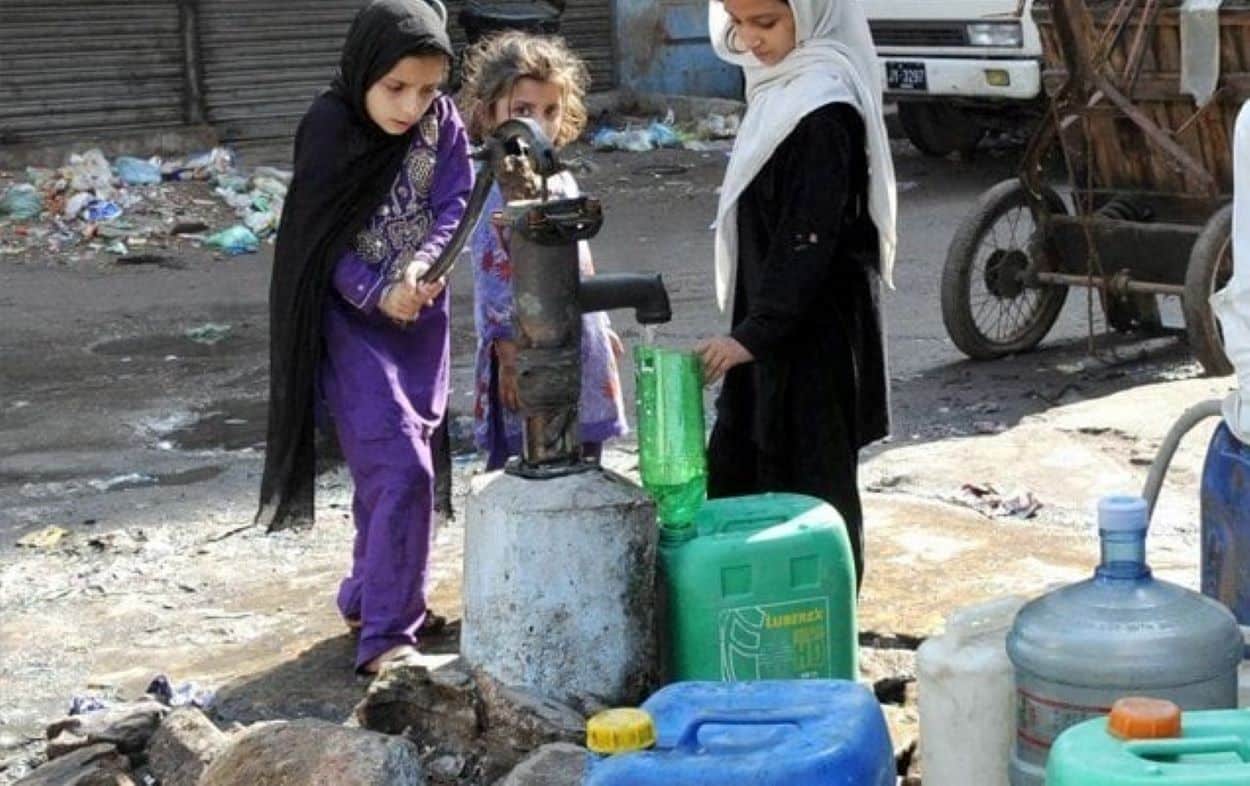A recent study by Karachi University, published in the EQA—International Journal of Environmental Quality — revealed high levels of contamination in the water supply of Liaquatabad Town, including metals and fecal matter.
The university’s Institute of Environmental Studies team, led by Assistant Professor Dr. Aamir Alamgir, conducted the study. In 2022, they analyzed 23 piped water samples from the area, finding 95.6% unsafe for consumption due to metal contamination. Furthermore, E. coli was detected in approximately 74% of the samples, with over 70% showing fecal contamination.
The study indicated that only two samples were excessively turbid, whereas others showed slight turbidity, fostering conditions ripe for pathogen and parasite growth. High levels of total dissolved solids, chlorides, and hardness were also noted, posing health risks like kidney stones and cardiovascular diseases.
Significant quantities of lead, nickel, iron, and arsenic were found in the samples. The publication noted that “the effects of high metal consumption are well-documented and harmful to human health, with prolonged exposure to arsenic potentially causing serious conditions such as diabetes and cancer. “
Dr. Alamgir attributed the contamination to a compromised distribution system, including leaks and the intermingling of drinking and sewage lines. He also mentioned that sulfates indicated domestic water contamination with industrial effluent.
Dr Alamgir highlighted the broader implications of water quality in Pakistan, noting that poor water quality is responsible for 40% of all deaths and 30% of diseases in the country, with diarrhoea being the leading cause of child mortality. He pointed out that every fifth person in Pakistan suffers from a waterborne pollution-related disease.
This study follows extensive water quality assessments across Karachi, particularly in high-risk areas, showing consistent contamination issues.






